Lilac Season
and other brevities.
Because of that unfortunate feature of the past—namely, its immutability—it will always be the case, from now until the end of time, that I ruined Hannah’s first Mother’s Day. In retrospect, the deck was stacked against its being a success, a day memorable for all the right reasons: like the fact that our one-month-old son was healthy, and that his birth had been uncomplicated; or that Hannah and I were, no matter how it felt, in it together, and were, compared to so many parents, well-prepared, our teamwork so practiced that, to an outside observer, it would have seemed effortless, even though during those initial months after Graham’s birth, it was anything but.
Instead, by the time Mother’s Day rolled around, we’d been sparring regularly for a couple of weeks; to our credit, our situation—particularly Graham’s colicky reluctance to nurse and his aversion to the bottle—was a stressor that could have torn a weaker couple apart, and our fights usually ended with first blood, in stalemate if not truce. And neither of us had allowed our respective resentments to ossify so totally that we could not try to put them aside for Mother’s Day.
I had planned ahead—too far ahead, in fact. Almost as soon as Graham was born, I had purchased for Hannah a fashionable nursing cover branded “the Cocoon”, which could be worn as a shawl or a cape or a poncho when it was not engaged in its primary function. It was in a color that looks remarkably good on Hannah—a chic amber—and I’d even considered buying her another in a different shade. It was a little expensive though, and frugality won the day, which ended up being just as well. As things turned out, Graham would not be nursing—not in private, not in public—and we would rarely leave the house. Modesty and stylishness were luxuries of which we had no need.
This was not my fault, obviously, but neither was it a good gift. It may have even salted the still-smarting wound of birth. I bought Hannah flowers, and—I’m somewhat embarrassed to mention it now—a map of the night sky on the eve of Graham’s birth, printed alongside a quote by Carl Sagan: “For small creatures such as we, the vastness is bearable only through love.” Today, I see it and worry that it’s tacky, like a wrist tattoo of a (still-living) child’s name and date of birth. Maybe it is, but it’s earnestly tacky, and earnestness imparts its own aesthetic, the value of which transcends—is incommensurable with—the fickle spectrum of mere taste.
It didn’t help me, though, on Mother’s Day. I’d been so enthusiastic about the poster I’d made that, rather than holding onto it, I’d given it to Hannah as soon as it arrived, figuring that I’d always have the Cocoon. Hampered by overeagerness and saddled with a $100 poncho, I resorted to my surest standby: writing a sincere letter, in which I took all the blame for the weeks of interminable jousting, admitting that I was, at bottom, a self-centered man-child. I expressed my gratitude that Hannah was patient enough to permit me to mature into my new role at my own pace, no matter how glacial it seemed relative to Hannah’s own rapid metamorphosis, from my best friend and lover into the miracle-working mother of our son.
The problem wasn’t that any of it was, strictly speaking, untrue. But it was too hasty, too presumptuous to assume that all our misunderstanding could be negated by mere apology, no matter how tender the sentiment or lovely the prose. In my rush to reconcile, I allowed my thinking some measure of enchantment; I came to believe that the purity of my longing for armistice could, through sheer force of will, bring it about.
For a propitious second, it appeared to have worked. With tears in her eyes and as gracious as ever, Hannah put the card down and draped the Cocoon over her shoulders. Predictably, she was moved by my sentiments and, after finishing the breakfast I’d made, we decided to put Graham in his stroller and bask in the temperate springtime noon, to let the auspicious May sun finish thawing us to each other. In the moment, it seemed inconceivable that that might not soothe our frazzled nervous systems, that the fresh spring air might not be the only purgative our relationship required.
We walked side by side, breathing deeply and staring at the tiny person we had created. In my memory of it now, there was a surreal thickness to the afternoon, dreamy and heavy, like something from a fairy tale or a movie set. I know now that the thickness in the air was the unresolved tension between us, and it felt like a dream because, in dreams, the words we hear uttered are sometimes attached to meanings unrelated to the consensus semantics of waking life. Such was the state of our communication at the time. I said something (or maybe it was Hannah) and her (or my) reaction was not just inappropriate and uncharitable, but from my (her) perspective, incoherent. Thus the clock struck midnight and the spell broke; Graham’s magical stroller was once again nothing more than a rancid pumpkin and, in a matter of minutes, we were fighting in earnest.
At the time it was the worst fight we’d ever had, though over the coming months we’d go on to repeat it, virtually word-for-word, rehearsing the script at least once per week but sometimes twice or three times. Today I believe I’ve diagnosed our problem: we two, who had always, always, put the other’s needs ahead of our own and prioritized the health of our relationship over individual resentments or petty jealousies, were of course no longer a couple but were a trio, and a new dynamic had emerged out of a rather unambiguous hierarchy: no longer in service to the other, we each sought first and foremost the wellbeing (real and imagined) of our son. When our visions of this end aligned, we were collaborators or at least labored in parallel; when they did not, we became rivals and saboteurs.
I suppose that is the gemma of human misunderstanding and conflict throughout the ages: we all want the good but disagree on what it is. When we are lucky enough to share a coherent vision, we disagree on the best means with which to effect it, to bring it about. Under the cooing, crying, diaper-shitting paradigm of our new master, we abdicated our allegiance to the partnership in order to better bring about the good—nay, the best—for our son as we saw it. Because communication had for us until now been so effortless and disagreement so rare, we were unpracticed in the art of war. Amateur fighters, we pulled punches too late; we held on long after the other, lips turning blue, tried to signal the tap tap tap of submission.
We were both traumatized by our Mother’s Day spat, and—although I like to think we grew out of that scorched earth—this year I approached the anniversary with some (understandable) trepidation. Knowing the well of grand gestures to be tainted, since I was the poisoner, I decided not to draw from it, to give those waters more time to circulate, reinvigorate. I got Hannah a mani-pedi and, on a blank card from the grocery store, wished her a happy Mother’s Day. I kept my sentiments broad and noncommittal. Oh—and I decided not to buy flowers. Spring had come early, and the lilacs were in bloom, and I knew that a hand-cut bouquet would mean more than any sterile-stemmed roses from the grocery store.
I’ve never been much of a plant person. Before meeting Hannah, I knew almost nothing about individual flowers, I could identify, by sight, perhaps two species: roses and opium poppies. It wasn’t that I couldn’t see their appeal—I’d even go so far as to say that I’ve long wished that I was a plant person, tranquil and serene, gentle and patient, a born nurturer possessing, where gratification is concerned, the inherent capacity to (or even preference for) delay, delay, delay. I can see it in my mind’s eye, see myself kneeling in the soil, sun on my brow as I pull weeds, unhurried and utterly at peace. Instead, ever since I was a little boy, I’ve hated getting dirt on my hands, hated the sensation of soil on skin, and this has made it difficult to keep a garden.
One of the first things I discerned about Hannah was that she is a plant person, and—at her best—all those things that I cannot say about myself. I met Hannah when… well I was, you see, working with… I was friends with her older brother—I know—and, at the time, neither of us had a driver’s license—I know, it’s not a flattering picture. Anyway, Hannah offered to drive us home from work one evening. She pulled up in a silver Subaru, an old one, and when her brother hopped in back on the passenger side, I thought it would be presumptuous to sit up front next to this young woman I’d never met, so I got in behind her, like she was our chauffer or (less improbably) arresting officer.
From the backseat of the hatchback, her face was mostly obscured, but I could see a bundle of dried lavender knotted with twine resting on the dash, and I caught a glimpse of her mercurial eyes in the rearview. On first glance, they looked blue, almost emerald, like the color of the Pacific off Oahu, but when I looked again they were a blue so gray as to be almost monochrome, still oceanic but cooler, the Pacific of the Oregon coast. In both instances so wide-set and stunning were they that, had she been a few inches taller, she’d almost certainly have ended up on a runway somewhere, and I’d not have met her. My good fortune, then, that she was 5’6” and a massage therapist instead of a fashion model.1
My friend’s father was dying of cancer, and Hannah had just moved home to be nearer to family. She wore her blonde hair in loose dreadlocks, which I was intimidated by; sitting behind her, I couldn’t make out whether it was her dreads or the car that smelled like patchouli and tea tree. Patchouli. Before meeting Hannah, I didn’t know what patchouli was. I recognized its scent, vaguely, but only enough to be embarrassed for the person wearing it. I knew that people less kind than myself tended to (if you’ll indulge me) make a stink about it, as if patchouli were an odor somehow on an offensive par with B.O. or even dog shit, despite its actually being the nice-but-distinct-smelling distillate of a fragrant species of mint.
To be sure, at that point in my life I was the olfactory equivalent of illiterate; I could smell, of course, but I couldn’t identify a scent to save my life except for the very simplest and most common fragrances: Tide on a sweater; the artificial coconut on a lover’s scalp; vanilla, coffee, and tobacco; marijuana smoke. It’s ridiculous now, but I was at first embarrassed for Hannah, anxious for her: didn’t she know that she smelled like a hippie? By the time we arrived at my apartment, she no longer smelled like a hippie to me so much as a goddess. I was drunk and didn’t know it, intoxicated by her perfume.
Hannah came in to see my apartment, and from there the game was up in humiliatingly short order: we offered up flimsy excuses to see each other again (“taking our dogs for a walk”) and each time we did, Hannah arrived wearing some new, provocative scent: the sweet sharpness of Texas cedarwood and lavender’s floral spice; an exotic palette of rich amber resin and Egyptian musk. Mere days after meeting her, on a hike with our dogs in tow (and myself, sadly, still in a year-long monogamous relationship with another woman) I realized that I was smitten, infatuated—probably in love. She went away for a weekend and I ended things with my then-girlfriend. When Hannah returned, I confessed my feelings for her, and the single greatest blessing of my life has been her reciprocation.
Hannah introduced me to her alchemical world; she made perfume from plants and bristled at the scent of artificial fragrance. It’s hackneyed to say that she taught me to stop and smell the roses, but what about the lavender, the jasmine, the pine and cedar and fir? One day Hannah physically stopped me to smell honeyed poplar on the breeze, a scent that I misidentified as huckleberry, because it so swiftly transported me back to a childhood afternoon on Mt. Adams, catching tadpoles from a creek with my younger brother while our parents—can you guess?—picked huckleberries.
The gift of connection is a broadening of perspective, the opportunity to expand perception beyond the inherent limits of our brute individual subjectivity; with fresh eyes we see what has always been, but until now was hidden. The spectrum that once terminated in violet expands beyond its former boundaries and there is a new color to the world, a novel kind of light. At least, this is how it went for me with Hannah. I walked the same circuit around the same town that I’d always walked while Hannah pointed out all that I’d been missing: every block, a yard overtaken by French lavender, weedlike, noxious. Those shameless little flowers with mirthful orange faces? Calendula. I found everything about her so charming that sometimes I pretended to know even less than I did: “Look at those,” Hannah said as we walked, pointing to some purple-petaled flowers so picturesque that I half expected them to start bleeding watercolor. Papaver somniferum, I thought, but played dumb. She leaned in to whisper, and her breath tickled my ear and raised goosebumps on my arms. “Opium poppies.”
And then there were the bushes: unassuming and incognito for most of the year that, for a few weeks in late April and early May, erupted in sensuous purple blossoms drenched in a perfume so heavy that their branches bent beneath their own redolence. Through some transitive property, because I loved Hannah and she loved the lilacs, I loved them too. I started to wear a pocket knife, kept scissors in my car, and whenever I passed a particularly hearty specimen, I’d take a cutting home for her, put it in a mason jar with water, and her delight would be my own.
This year, spring arrived early. Graham and I took advantage by going for walks nearly every afternoon in April. At first without really meaning to, I began making a mental map of every lilac bush in the square mile around our apartment. There are a dozen at least between 6th and 18th on Cascade alone; a private drive off Columbia has four bushes buffeting the bluff. Before long, I found myself ranking them according to how easily I could harvest their blooms unnoticed. Graham and I would stop to smell the lilac. I’d inhale deeply; Graham would nearly hyperventilate in his eagerness to mimic the act. Each day, I almost picked a stem to take home. I’m not sure why I didn’t.
That’s not true. I wanted—I needed to save the gesture for Mother’s Day, reason abandoning me as I began to suspect that—plucked on the proper day from the perfect vine—something like transubstantiation would occur and, in the vase, the lilac would become an atoning talisman, would nullify last year’s failure, erase it, undo it. Somehow, I convinced myself there was such a thing as a gift so precious it would be squandered in the giving.
Mother’s Day is celebrated on the second Sunday of May; this year, it arrived on the 14th. It was a sweltering ninety-two degrees Fahrenheit and came on the tail of an unseasonably hot week. The heat had been so extreme, in fact, that I had become anxious about taking Graham outside and curtailed our daily walks. So on Sunday, when I went to pick Hannah her bouquet I was surprised to find the first lilac covered in dry brown petals, brittle, scentless, and quite dead. Surely a one-off. I continued. The next bush had suffered similarly against the sneaker heatwave, and so had the one after that, and the one after that.
It wasn’t until I was almost home that I spotted a perpetually-shaded lilac bush, choking in hawthorn and sandwiched amidst a grove of red alder. It had been mostly picked clean (probably by apartment dwellers such as myself), but in its desperate fight for sunlight it had grown taller than its kin, spindly and ungainly, and I could see a single bloom above me, a sickly pale purple. I was out of options. In one hand I clasped my scissors; with the other, I reached heavenward and bent the branch almost to breaking. Then, in one fell motion, I severed the last necrosing fruit of the season, pruned the blossom from the bush. Knowing already that it was hopeless, I had to smell it for myself. I pressed its petals to my nose: nothing. This bloom was no less spent than the rest that I’d encountered. It was just not yet bleached by the unwelcome May sun.
Sick with shame and self-reproach, I went home and put the specimen in a mason jar with a little water, where it stayed dead. If Hannah was disappointed in me, she didn’t show it. The cutting finished wilting and we discarded it without ceremony. I felt foolish, but more than that, I was confused. I had known the lilac season to be, like all seasons, finite. I had not thought that I could bask forever in some immortal spring, smelling flowers with my son for eternity. But hadn’t I? Why else would it come as a shock, a betrayal to find the season over?
As I get older, I suspect more and more that the Buddhists have the right of it, or at least are nearer the mark than the other great religious traditions. I wish it were not so. I would rather it be Christianity, the religion of my youth, with its virgin birth and empty tomb, its salvation solus Christus, sola gratia, its Good News. Or even the sweeping karmic logic of Hinduism: the cosmic illusion of maya out of which Atman dissolves into its source, the first and final mover, the perfect unity of Brahman.
Buddhism’s claims are far humbler and, frankly, less appealing; the Noble Truths appear almost cynical against the miracle of Easter. But they are also, fundamentally, empirical claims, hypotheses that can be tested against reality’s hard edges. The First Noble Truth, dukkha, is the hypothesis that pain is and that it is inevitable. The trauma of birth; the agony of sickness; the horror of decrepitude; the anguish of loss; the terror of death. Some set of these horsemen will be visited upon all beings, sayeth the Buddha. The verisimilitude of his claim is beyond reproach: obvious, self-evident, Cartesian.
Dukkha’s twin is anicca or impermanence; anicca denotes the ultimate transience of all things in this world of passing away. Together, they are jointly sufficient descriptions of what it is to be.2
Tanha, the Second Noble Truth, is the hypothesis that suffering emerges from our attachments—namely, our attachments to those things that are transient, which is to say everything. We want to have what we do not have, of course, but that is the least of it: we want to have what cannot be had, want to keep that which cannot be kept, and so on. Like water carried in cupped hands, the material of being slips inexorably through our grasp, and—as it does—we suffer.
Yes. I, in my hubris, thought to impart a moral upon you: the two weeks in spring during which the lilacs bloom are not something that you get. The heady perfume that once a year suffuses gray April with its mesmerizing scent is not something to be had. Anicca: there’s nothing to get, nothing to have, nothing to keep. A moment, and then it’s gone. The metaphor is on the nose, certainly, but earnestly so, because what else are our shockingly brief lives, if not that? A sequence of ephemeral springs, blooming unbidden and departing unexcused?
Hannah came into my life with baggage from a previous relationship: a little gray cat named Deva. I had a cat too, as well as a dog, and we three boys made room in our lives, first for Hannah (I didn’t give my pets much of a choice) and then for Deva. Deva had her quirks—she was a cat, after all—but was the least demanding member of our household by an order of magnitude. She was affectionate, but not needy, friendly, but always exuding an effortless feline dignity. Her biggest peccadillo was a compulsive obsession with running water. She would scratch at the bathroom sink until someone turned the faucet on for her; sometimes she would drink from it, but just as often she would stare at it and then exasperatedly at us, as if she were a schoolteacher waiting for her dimwitted pupils to see where they had erred in some chalkboard sum, patiently allowing us to catch and correct our elementary mistake.
While I was in school and spending days in front of my computer, Hannah bought me a used desk and a new office chair. Deva immediately commandeered the latter as her napping throne. All writers have rituals—cigarettes, stretches, coffee. Because my chair was perpetually covered in a thick layer of asphalt-colored cat hair, my prewriting ritual became, out of necessity, vacuuming. Or not: often, the mere presence of Deva on the chair was enough to break my fragile resolve: who, after all, wants to bother a sleeping cat?
You’re too tired; you have nothing interesting to say; no one is going to read you. It’s silly, but to this litany of excuses for doing anything other than writing I added, straight-faced, there’s a cat on your chair or, even more pathetically, there’s cat hair on your chair. These were not particularly sound arguments, since it is not the case that I require that desk or that chair to write. But so long as I could convince myself to accept the faulty premises, I could without fail arrive at the desired conclusion.
That’s what I’ve been up to. I continued to think about lilacs—passages in the shower, possible titles at work—but, as the weeks turned into one month, then two, it started to dissolve, like a dream upon waking. I decided to give up on it. There are only two cures for writer’s block, which is a strictly acute condition: the first is to write something, even something shitty. The second remedy is to not write something. The former removes the block; the latter excises the writer. My course was the second treatment. There are always, always demands on my limited free time, and I’m never without a healthy backlog of chores that have gone too long neglected, that threaten to multiply if not attended to.
Three weeks ago, one of those tasks was taking Deva, who had been losing weight at an alarming pace, to the vet’s office. This is never a particularly pleasant errand—in the best-case scenario, you leave a bill lighter with a pissed-off cat. It was not the best-case scenario. Deva was not well, the vet told us after a brief examination. Without further tests, she couldn’t tell us more than that. It’s a hard situation. Veterinary diagnoses are often vague and always expensive, but there’s that sliver of hope that $300 bloodwork or $200 x-rays might reveal some easily-treatable malaise, an infection curable with antibiotics, arthritis that responds to steroids.
An hour or two later (I’d gone home to feed Graham lunch) Hannah called me, crying. Deva had cancer. The doctor, whose bedside manner left much to be desired, assured Hannah that it would be acceptable to euthanize Deva then and there.
“What should I do?” Hannah asked between sobs.
“Come home,” I told her, “and we’ll figure it out. We aren’t going to make any decisions today.”
The word euthanasia comes from the Greek and its literal translation is something like “good death”, though the sense of the word is closer to “a happy death” or “a gentle death.” I do not believe that the veterinarian who offered to euthanize Deva that day could have delivered a death good or gentle; charitably, I suspect that she was overworked and that this led to her being callous, careless. There is much to be said about the practice of euthanasia in the abstract, but this is not the place for it. You have already given me more of your attention than I deserve, and is that not the only resource of real value? Money is valuable only insofar as it is a proxy for time, but time’s worth is contingent, asymmetrically valuable. It cannot be saved, but it can be wasted. What is left? Attention?
Hannah and I found an independent vet who specialized in hospice care for dogs and cats. The cost was not insubstantial, but—because he performed no tests and provided only palliative care—the expense was reasonable, something we were able to afford. We bought a couple of weeks, which we did not waste. We attended to Deva. When she stopped eating and finally could not even be roused to sip running water, we arranged for her to be euthanized at home.
Any death gives the lie to all life; scheduling one is a harrowing, impossible responsibility, and the only thing worse is to lose even that modicum of control. On the eve of what I thought would be our penultimate day with Deva, I said goodnight to Hannah and Graham and thought of seasons ending, thought of lilac in weedlike abundance, dying in stop motion: blooming, parched, wilted, gone.
That night in the small hours, I awoke to Hannah shouting for me. Deva was experiencing some sort of medical emergency. I will spare you the grim details. Suffice it to say that the peaceful trajectory of her linear decline toward death had been upended. She was suffering. Hannah tried to contact the hospice vet, but because it was the middle of the night, he would not see her messages until morning. We did what little we could: gave her medicine for the pain and sat on the bathroom floor next to her as she lay dying.
Is death a problem in need of a solution? As the life of our sweet, gentle little companion came to its violent, intolerable conclusion, there was no question. It was not. What had come too swiftly was then not swift enough; what had seemed an intruder, a thief, was revealed, finally, as a Samaritan, a friend.
Now my chair is empty, and I write. And I think I understand until, unbidden, in my mind’s eye I see Deva at the faucet, but she’s the Buddha beneath the Bo tree, and she’s the Buddha wracked with pain, dying of dysentery, both at the same time, in superposition. She stares hopelessly at me, patient pity for her idiot student, the dunce who cannot refrain from making a fundamental mistake of category: it’s not the kind of thing you solve, she’s saying. It is a gift given in earnest, and the worst fight you’ve ever had, and springtime’s sudden end on the second Sunday in May. There isn’t anything to get.
It’s berry-picking, a half-forgotten afternoon catching tadpoles. They’re not the kind of things that you can keep. The trickle of tap water in the sink. Nothing to have. Do you understand? Take a deep breath; it’s like the scent of poplar on the breeze. It’s there, and then it’s not. It’s here, and now it’s gone. Exhale. It’s okay. There’s not anything to do about it.
As always, you can reach me at benjimahaffey@substack.com. Thanks for reading, and special thanks to Hannah for… well, everything I wrote about here, and much, much more. Thanks also to Deva for teaching Diego how to be a cat. I miss you.
My beta reader and critic informed me that here I was perhaps laying it on a little thick. This is probably true, but if I keep editing I’ll never publish, so I’ll invoke the philosopher Ludwig Wittgenstein, who, in the preface to his major work Philosophical Investigations, wrote the following:
“I should have liked to produce a good book. It has not turned out that way, but the time is past in which I could improve it.”
In The World’s Religions, in addition to dukkha and anicca, Huston Smith lists anatta as the third Buddhist “Marker of Existence.” Anatta refers to the nonexistence of permanent identity or soul or self. I am convinced that we do not have something like selves in the sense that we use the word, but I am not sure that this hypothesis is self-evidently correct in the same way that dukkha and anicca are patently true.


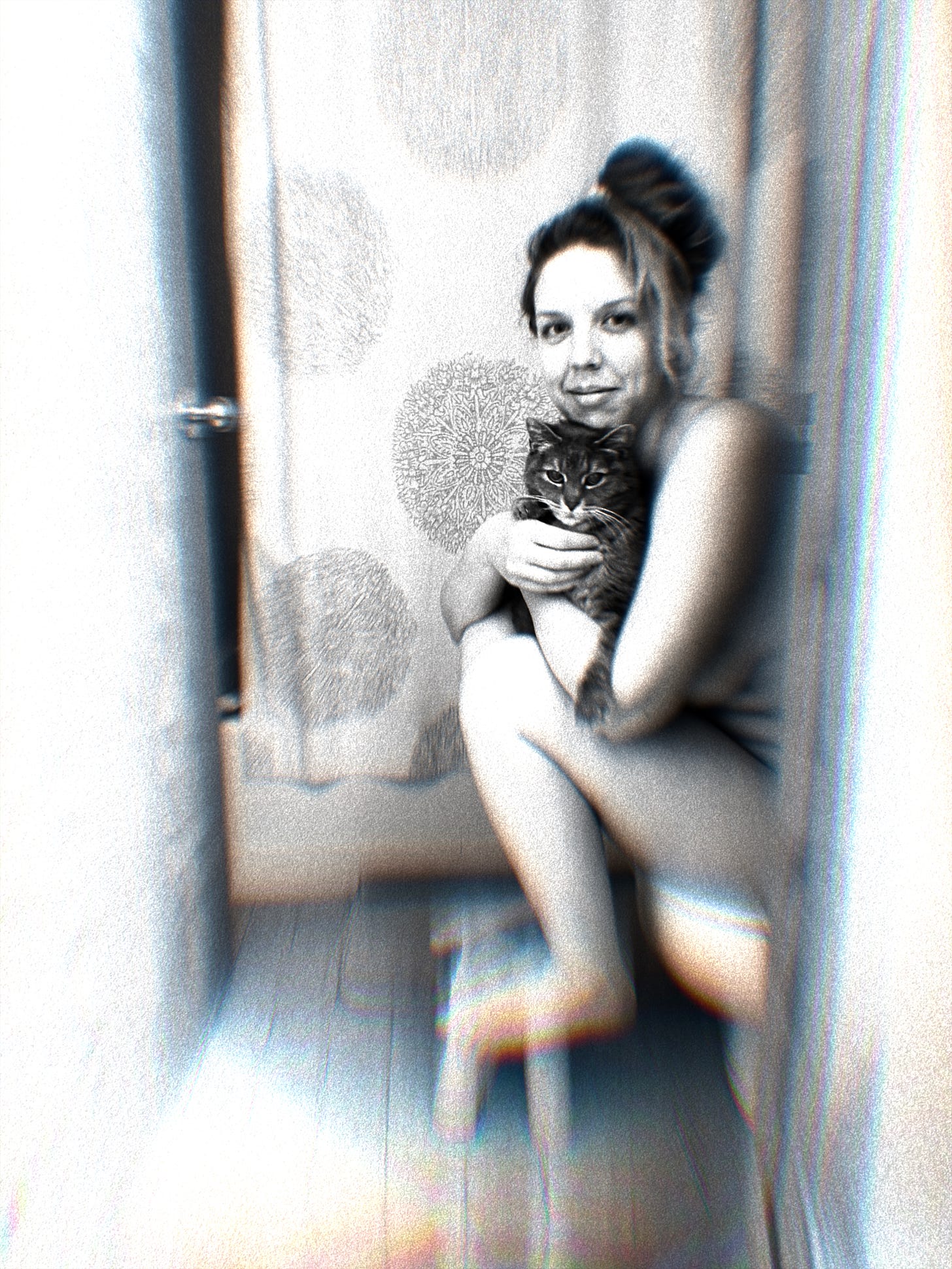
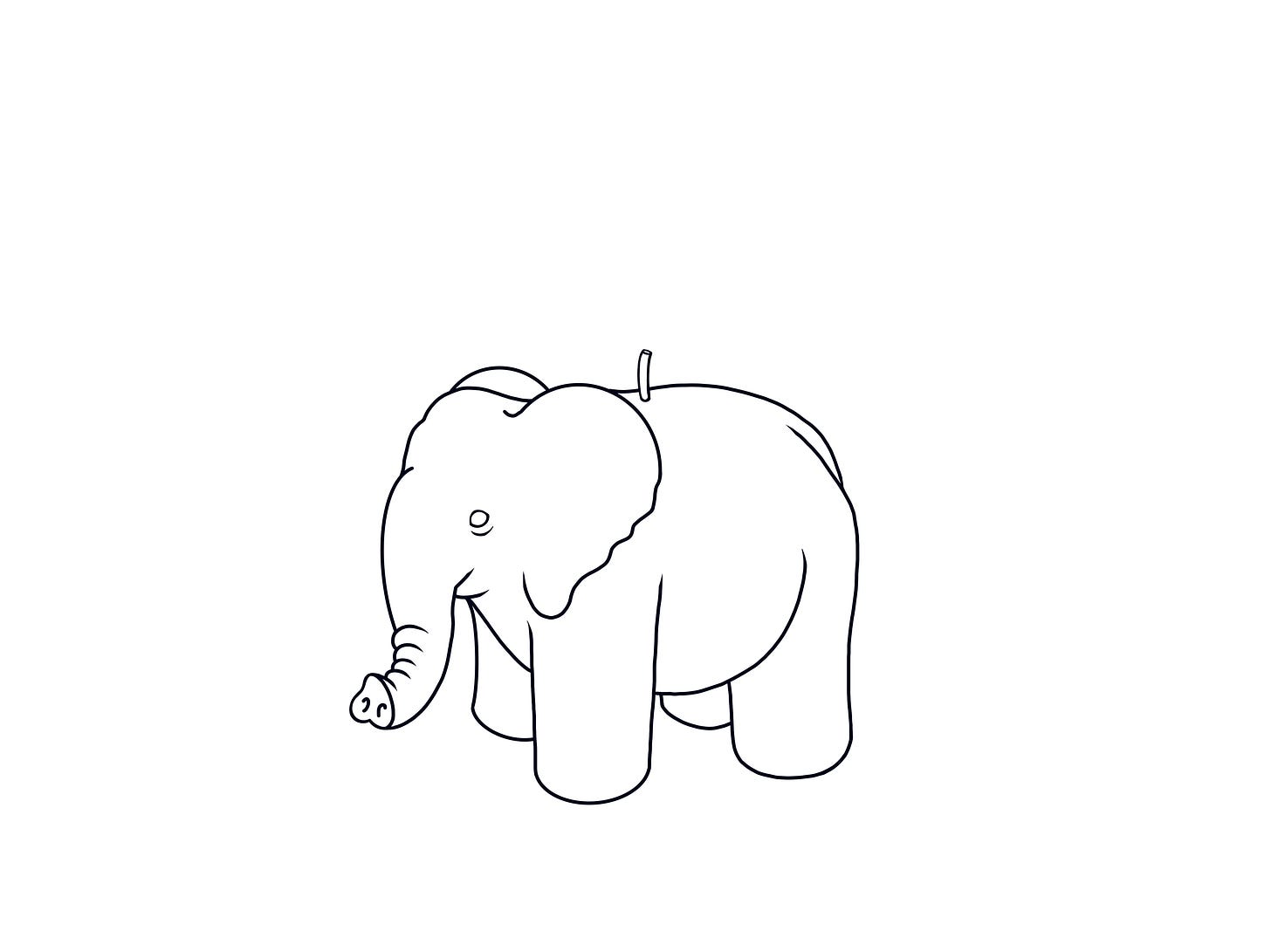
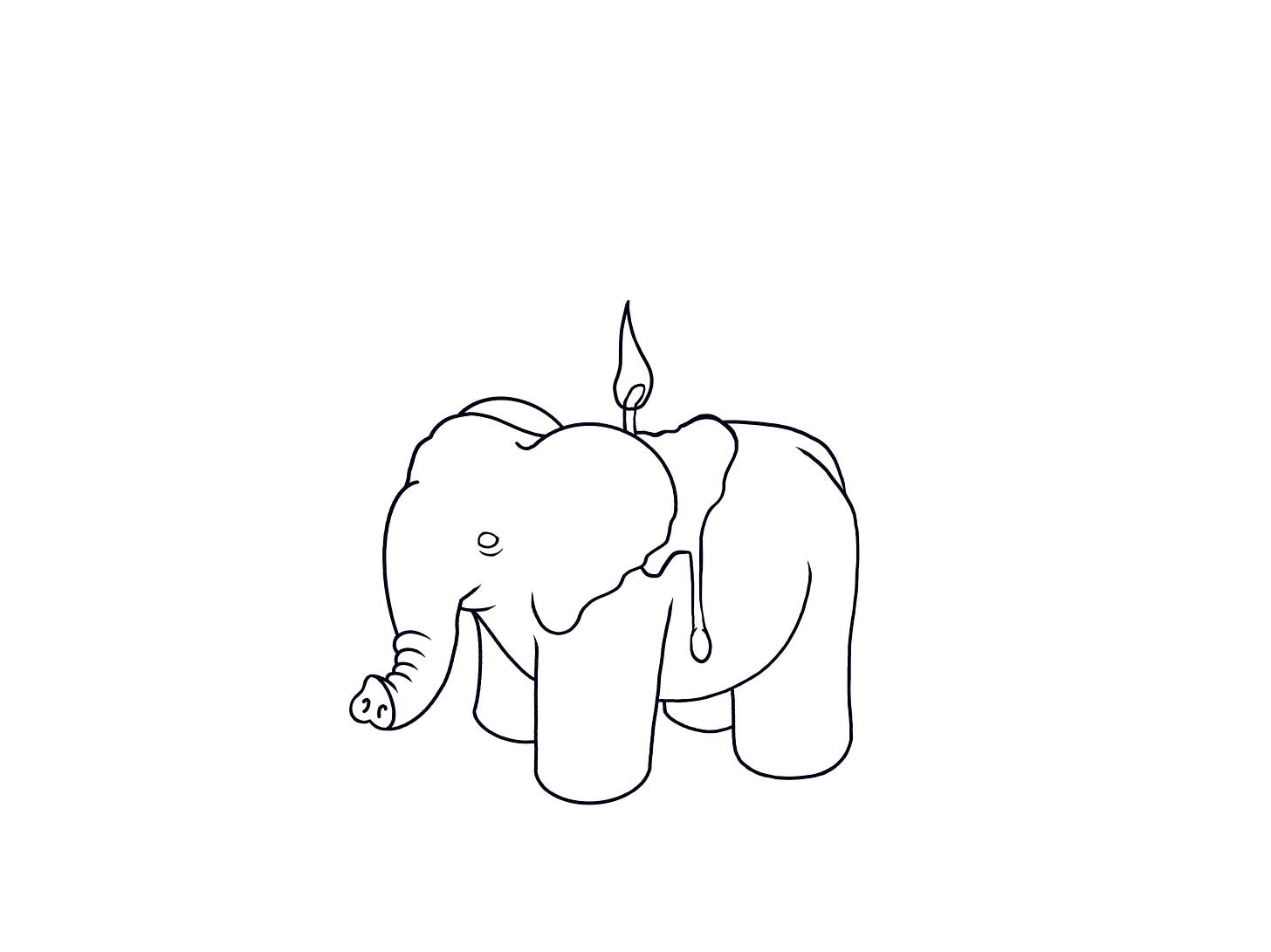
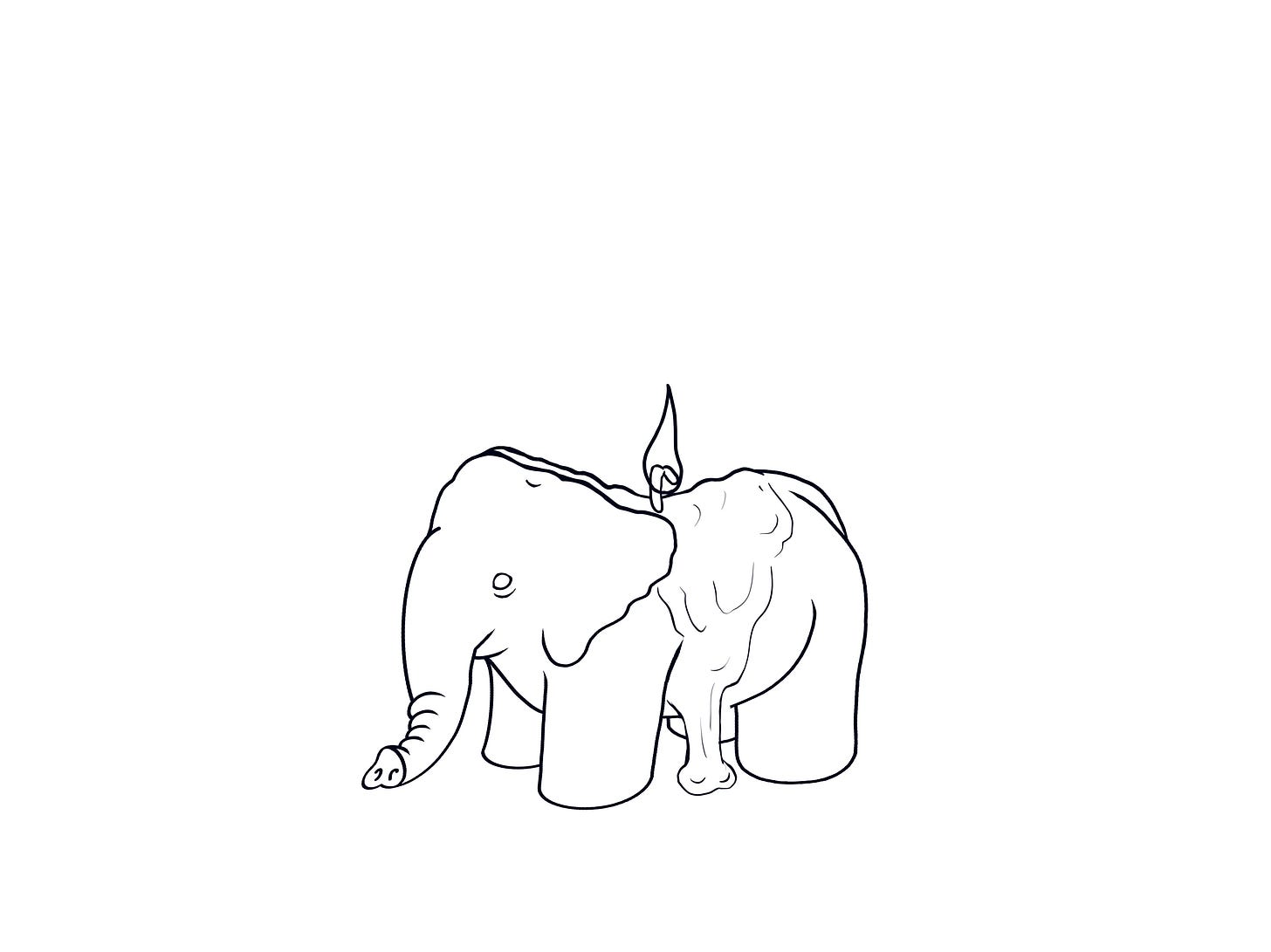
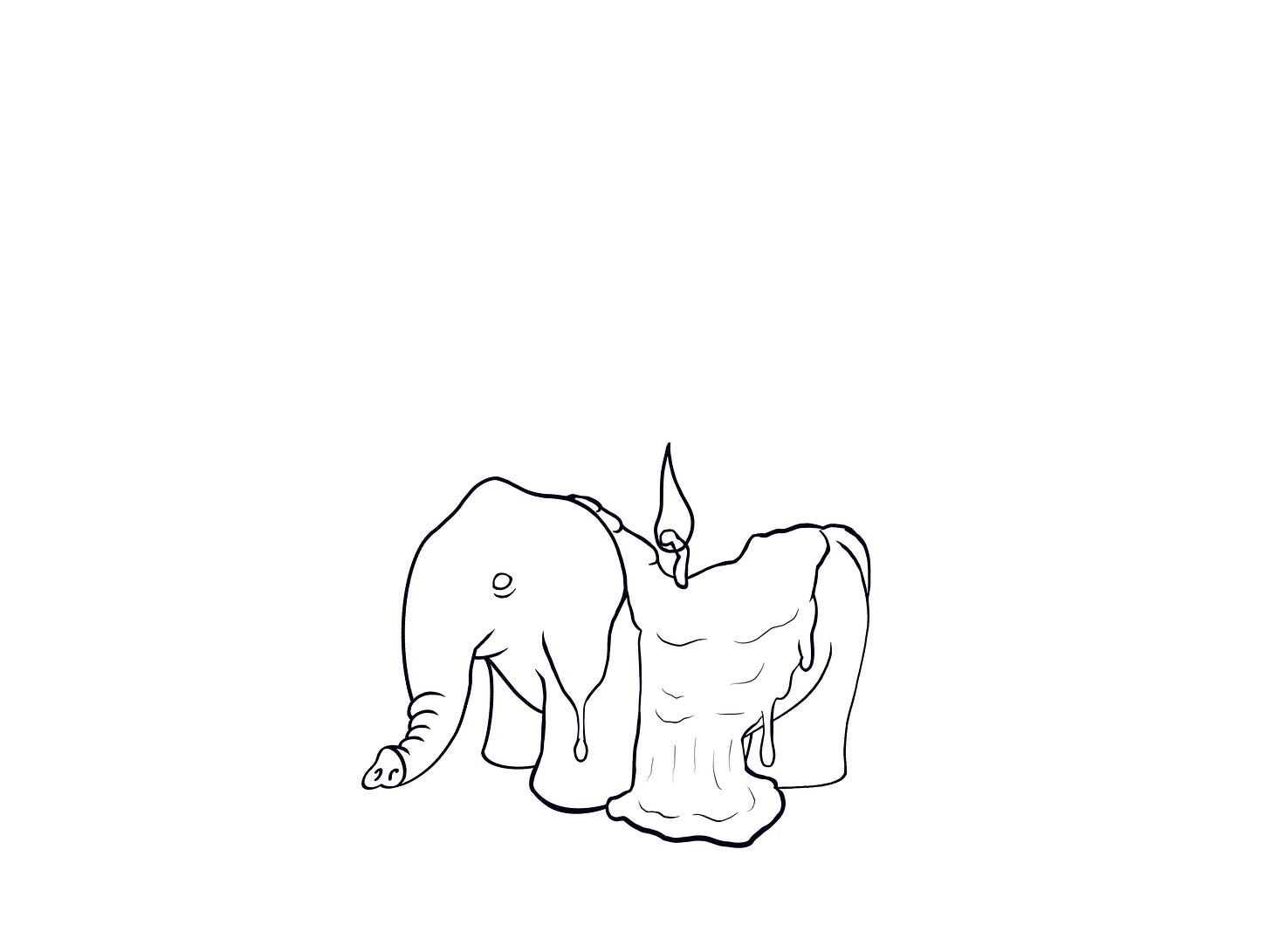
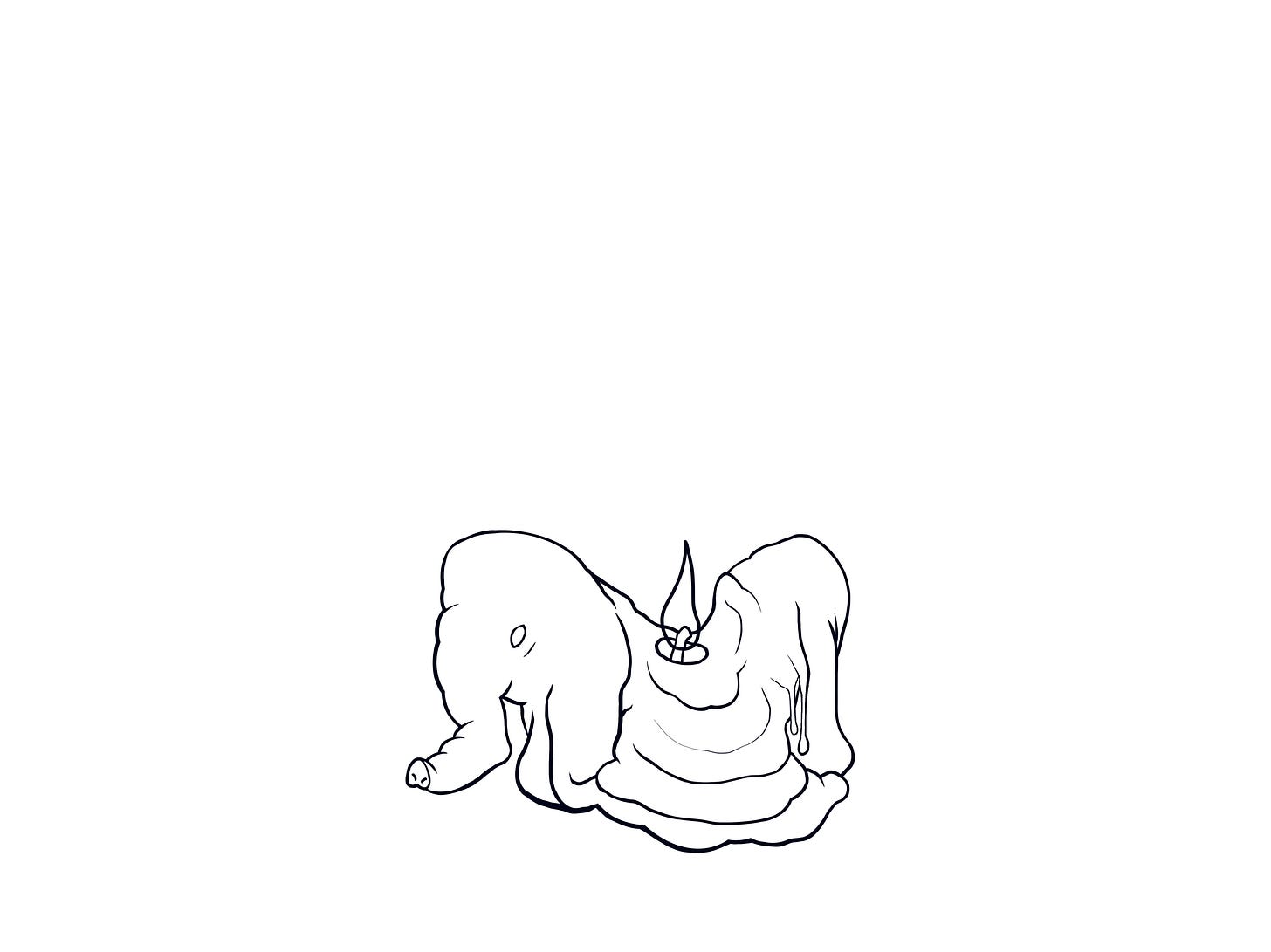
Seriously excellent. Wow. Just found myself standing in a store, mid-aisle, unable to stop reading. Wow.